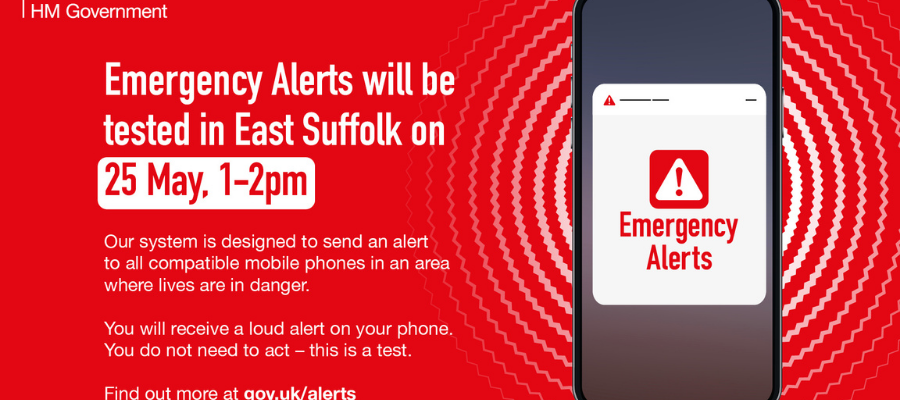🕒 Article read time: 2 minutes
Government trialling Emergency Alerts warning service

The government is trialling a new warning alert service, which will send an alert direct to people’s mobile phones where there is a risk to life, such as a flood or terror attack, ahead of its planned UK-wide rollout.
The new Emergency Alerts service will send a message only where there is a risk to life, either locally or nationally. This could include public health emergencies, severe floods, fires, industrial incidents and terror attacks.
TRIALLING THE SERVICE
The first successful trial of the service was held in East Suffolk on 25 May. The second will take place in Reading on 29 June, a more densely populated test area. Should the tests prove successful the capability will be made available for use across the whole of the UK later this year.
People who receive a test alert will not need to do anything – it is simply a test to ensure the effectiveness of the service. The alerts are free to receive, and one-way. They do not reveal your location and do not collect any personal data.
Drivers are urged to take special note as during this trial the alert will also cover Junctions 10 to 12 on the M4. The alert will be accompanied by a loud siren-like sound for up to 10 seconds, and handsets may read out the alert for a further 10 seconds. Government advises drivers not to touch their phone, continue driving and not respond to the noise.
VITAL EMERGENCY RESPONSE TOOL
“The Emergency Alerts service will be a vital tool in helping us to better respond to emergencies, both nationally and locally,” said Penny Mordaunt MP, Paymaster General, “The concept was used to good effect during the pandemic when we asked people, via text message, to stay at home to protect the NHS and save lives. This new system builds on that capability and will allow us to more quickly and effectively get life-saving messages to people across the UK.”
Emergency Alerts have already been adopted by many countries, including the USA, Netherlands, Canada, South Korea, Japan and New Zealand, where it has been widely credited with saving lives during earthquakes.
In future, the alerts would issue a warning, details of the impacted area if a local event, instructions about how best to respond, and include a link to gov.uk/alerts where people can further verify its origin and receive more information, as necessary. These alerts will only ever be sent by authorised governmental and emergency services users.
*www.gov.uk/alerts
Published On: 24/06/2021 16:00:13

Comments Section
If you are a Logistics UK member login to add comments.